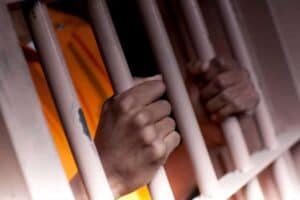With increasing petrol prices, many people seek alternative transport, and trains are one of the cheapest modes.

Transport Minister, Fikile Mbalula, celebrated the launch of 100 new electronic trains on Monday, 4 July, at the Gibela Rail Consortium Dunnottar Factory in Ekurhuleni.
The Minister was joined by Gibela board members, Passenger Rail Agency of South Africa (Prasa), Gauteng Premier, David Makhura, and the Executive Mayor of the City of Ekurhuleni Metropolitan Municipality, Tania Lynette Campbell.
This project began in 2013, when Gibela and its shareholders signed an R53 billion contract to produce 600 trains for Prasa’s Metrorail line.
“This mandate was given to us to help millions of people to travel in comfort from the township to their workplaces daily,” said Gibela chairperson, Irene Charnley.
This video is no longer available.
With increasing petrol prices, many people seek alternative transport, and trains are one of the cheapest modes. There could not be a better time for these trains to be distributed.
South Africa’s railway system has been in shambles for years now. Many stations have closed down due to vandalism and crime.
South Africa has the most advanced railway system, with over 30 000km of track. Yet the system has been completely mismanaged, leaving some of the track systems not fit enough to handle the new trains.
Minister Fikile Mbalula disclosed that 100 trains were the set target, which were supposed to be ready by 2020, but issues that caused hindrances were faced, such as material procurement and Covid-19, among others.
The minister does see the completion of the 100 trains as a “milestone and a giant leap towards affordable integrated public transport network”.
“These state-of-the-art passenger trains are just one element in the national rail policy, which aims to rebalance our country’s transport industry,” said Irene Charnley.
ALSO READ: Petrol price hike: Here’s what it’ll cost for a full tank in different cars
Minister Fikile announced the White Paper on National Rail Policy in March 2022. The White paper seeks to rehabilitate the rail sector as the backbone of South Africa’s core transport.
Premier David Makhura explained that this project has created jobs and contributed to rail modernisation, supplying business to industries such as steel and other small businesses.
The company employed over 1 100 people, with 70% of them being young and 46% of them being women.
Currently, Gibela has procured 53% of the train components locally and has helped in providing skills to 9 100 employees.
This project’s success depends on many factors, including South Africans taking more responsibility in not vandalising the new infrastructure.
Government will also be introducing new security upgrades, including concrete walls that are 4 meters high, 3 100 security personnel and contracting of external companies.
Support Local Journalism
Add The Citizen as a Preferred Source on Google and follow us on Google News to see more of our trusted reporting in Google News and Top Stories.






